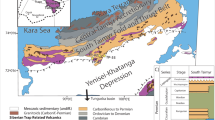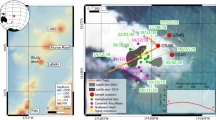Abstract
MR. G. P. SCROPE (“Extinct Volcanos of Central France,” ed. 2, 1858, p. 30) describes how Guettard and Malesherbes, returning from Italy, met Faujas de St. Fond at Montélimar in 1751, and, in his company, founded the theory of the volcanic origin of the mountains in the Vivarais. Guettard and Malesherbes thence proceeded to Auvergne, where M. Ozy, a chemist of Clermont-Ferrand, acted as their guide. Ozy knew his ground well, and had already observed the general aspect of the rocks, since Guettard (Mém. Acad. roy. des Sciences, 1752, p. 37) says that he “m'assura … que je trouverois par-tout une même structure & les mêmes matières qu'il m'avoua ingénument n'avoir jamais reconnues pour ce qu'elles étoient.”
This is a preview of subscription content, access via your institution
Access options
Subscribe to this journal
Receive 51 print issues and online access
$199.00 per year
only $3.90 per issue
Buy this article
- Purchase on Springer Link
- Instant access to full article PDF
Prices may be subject to local taxes which are calculated during checkout
Similar content being viewed by others
Author information
Authors and Affiliations
Rights and permissions
About this article
Cite this article
COLE, G. Early Observations of Volcanic Phenomena in Auvergne and Ireland. Nature 63, 464–465 (1901). https://doi.org/10.1038/063464d0
Issue Date:
DOI: https://doi.org/10.1038/063464d0
Comments
By submitting a comment you agree to abide by our Terms and Community Guidelines. If you find something abusive or that does not comply with our terms or guidelines please flag it as inappropriate.



